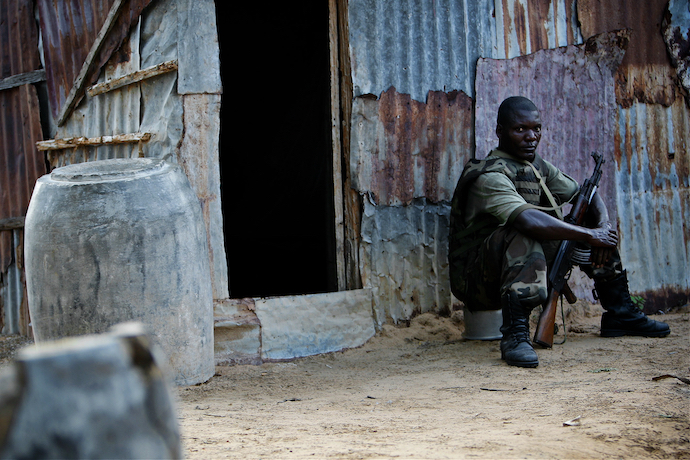The Platform
Latest Articles
by Wonderful Adegoke
by Abdul Mussawer Safi
by Mohammad Ibrahim Fheili
by James Carlini
by Mohammad Ibrahim Fheili
by Abidemi Alade
by Sheiknor Qassim
by Theo Casablanca
by Vince Hooper
by Wonderful Adegoke
by Abdul Mussawer Safi
by Mohammad Ibrahim Fheili
by James Carlini
by Mohammad Ibrahim Fheili
by Abidemi Alade
by Sheiknor Qassim
by Theo Casablanca
by Vince Hooper
Somalia’s Complex Crisis: The Folly of Blaming It All on al-Shabaab
Somalia’s problems extend well beyond al-Shabaab.
There’s little room for debate about the malevolent nature of al-Shabaab’s ideology, which distorts Islamic values while perpetuating acts of terror. At its core, al-Shabaab remains a menacing entity. However, it’s critical to recognize that the group has evolved from its original, monolithic form to become increasingly fragmented, adopting a franchise-like model. It has even extended its influence into the Somali government, intelligence agencies, and traditional clan structures. Nonetheless, it would be a grave mistake to assert that al-Shabaab is the sole source of violence and instability in Somalia.
Over a year ago, Somali President Hassan Sheikh Mohamud declared an “all-out war against al-Shabaab,” vowing to confront the group in every corner of Somalia. To accomplish this, he armed various clan-based militias. Critics warned that this strategy could deepen national divisions, ignite endless clan conflicts, and paradoxically strengthen al-Shabaab. A year and a half later, Somalia finds itself embroiled in an even more catastrophic situation. Clans are increasingly taking up arms against one another, further fragmenting the social fabric.
Adding to this grim picture, elite military units such as Danab and Gorgor have faced ambushes and severe losses, losing both personnel and equipment in regions like Galmudug and Hirshabelle. These repeated failures not only raise questions about the military’s efficacy but also fuel distrust within its ranks.
This raises a host of unsettling questions. Can al-Shabaab realistically overpower a far larger and better-equipped army, especially one backed by the African Union and the United States? The group’s ability to execute devastating ambushes challenges the very competence of the Somali armed forces. We are left wondering how these soldiers could be so unprepared, especially given the environmental conditions that should have made an ambush almost impossible to execute undetected.

The broader reality is that Somalia, fraught with corruption, lacks the kind of leadership needed to unify the country. As a result, the nation has become a lucrative target for illegal mining and other forms of exploitation, especially in regions like Galgadud, around the town of El-Bur.
In August 2011, when al-Shabaab unexpectedly withdrew from Mogadishu, it was declared a tactical shift rather than a defeat. Behind the scenes, highly specialized mercenary sharpshooters were targeting al-Shabaab fighters, causing the group to recalibrate its strategy. This clandestine operation, orchestrated by undisclosed interests, serves as a reminder that various actors, motivated by their own agendas, shape the ongoing conflict.
President Mohamud’s recent military endeavors, conducted from a central command in Dhusamareeb, underscore the complex geopolitics at play. Dhusamareeb serves as a hub for international illegal mining, attracting a range of global actors. Yet Mohamud seems unable to extend his influence to places like Garowe in Puntland, which has suspended its relationship with the federal government.
Meanwhile, territories like Sool, Sanaag, and Cayn, which have long suffered under the oppressive rule of Somaliland, are seeking to assert their independence, appealing to the federal government for recognition. Their pleas, however, have fallen on deaf ears, highlighting the government’s unwillingness or incapacity to pursue meaningful reconciliation.
Complicating matters further is the government’s recent initiative requiring citizens to obtain digital identification cards. This move, executed without resolving questions of citizenship and national identity, threatens to deepen divisions in a country already rife with internal strife.
Despite the prevailing chaos and loss of life, the government has maintained a narrative of victory against al-Shabaab, a claim that any objective observer would find deeply problematic. Challenging this narrative is, ironically, considered an act of treason. This dynamic, sustained by an international community unwilling to scrutinize the situation, keeps the status quo intact: al-Shabaab continues to exist, corruption thrives, and failure becomes a profitable industry.
In sum, the challenges facing Somalia are multifaceted and extend well beyond the menace of al-Shabaab. It’s crucial for all parties involved, from the Somali government to international stakeholders, to adopt a more nuanced understanding of the situation. Only then can meaningful progress be made toward lasting stability and peace.
Abukar Arman is a political analyst, writer, and former Somalia Special Envoy to the United States. Many of his articles and essays on foreign policy, geopolitics, Horn of Africa and the Islamic world are widely published.